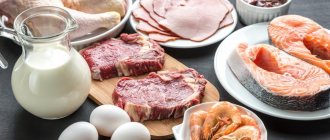Sometimes, in order to quit smoking, a person lacks some little thing. This may be some argument that is really meaningful to him. Or the opportunity to receive support in times of difficulty.
Sometimes - on the contrary - so that no one touches during the process of quitting smoking. But there is one question that plagues both men and women who decide to quit smoking. This question is not idle.
The problem of how to quit smoking and not gain weight (to put it simply, gain weight) is really a problem. After all, excess body weight is not only an aesthetic side of the issue. An obese body that has just weaned itself from smoking will be forced to deal with the consequences of now overweight, and these consequences are quite serious.
Why do we gain weight after quitting smoking?
But why do people who quit smoking begin to gain weight? What triggers the pathological process of weight gain? Let's try to figure it out.
So, once nicotine enters the body, it triggers certain processes. First of all, this is the stimulating effect of nicotine. Like any cholinomimetic, nicotine enhances the production of adrenaline. The release of adrenaline speeds up the work of many organs, and the higher the speed of work, the higher the need for energy nutrients.
In order to provide all organs and systems with them, the brain “gives” a command to increase metabolism, that is, the level of metabolism. All nutrients entering the body are quickly metabolized by the organs (broken down) without having time to be deposited.
Another physiological reason is the effect of nicotine on glycogenesis in liver cells and, subsequently, on the production of insulin in the islets of Langerhans of the pancreas. The connection is this: under the influence of nicotine, the liver actively breaks down glycogen, a carbohydrate that is a reserve nutrient.
Glucose, a breakdown product of glycogen, is released into the blood. The higher the glucose level, the less the need for it to be supplied from outside, with food. That is, a person simply does not feel the need to eat.
Each cigarette smoked stimulates the breakdown of glycogen, and the process can continue indefinitely. Thus, the problem of how to quit smoking and not gain weight is “tied” to both metabolic processes and endocrinological ones.
The third reason lies in the brain. Nicotine stimulates cholinergic synapses, increasing the level of energy processes in brain cells. A person experiences vigor, increased energy, and productivity.
Increased production of endorphin under the influence of nicotine leads to a decrease in central nervous system tension and relieves stress. At the same time, glutamate, one of the memory factors, is released in the brain. The brain “remembers” how good it was with nicotine, and simply begins to demand more and more of it.
But in addition to its influence at the level of pure physiology, nicotine is a powerful anti-stressogen. When a person feels bad, scared, bored, when tormented by problems and questions, he begins to look for something that will reduce the level of anxiety. What's always at hand? Food and cigarette. But food needs to be taken out of the refrigerator and cooked, but with a cigarette it’s easier.
Now imagine that all this has been taken away from the smoking body. Quit smoking, and there is no more nicotine, no anti-stress factor. The process of quitting is stressful in itself. A person begins to eat up this stress. The level of glucose in the blood is not as stable as that of a smoker - again the urge to eat appears. Less endorphins and glutamate are produced - less pleasure.
Reasons for weight gain after quitting cigarettes
People gain weight by eating excess amounts of high-calorie foods. After quitting smoking, people experience food cravings. There are several reasons that explain why former smokers can get fat:
- When smoking, human organs are constantly exposed to the negative effects of nicotine.
- Smokers experience increased heart rate. This increases energy expenditure by 100 kcal.
- When nicotine enters the bloodstream, it activates glycogen synthesis in the liver. This causes an increase in blood sugar levels. As a result, there is a slight loss of appetite.
- Nicotine suppresses taste buds, which affect the feeling of hunger. After quitting smoking, food seems more flavorful. That's why a person eats a lot more.
Attention! Under the influence of these factors, many people gain 2-3 kg within a few months. However, when you quit smoking, the body quickly cleanses, metabolism normalizes, and the functioning of internal organs improves. This helps stabilize your weight.
Quitting smoking and not gaining weight is quite simple. To do this, it is worth understanding that an addiction is more associated with psychological dependence than physical dependence. Therefore, it is worth showing willpower and following simple recommendations.
If the attitude is wrong, quitting addiction will cause significant stress. The reality is that this will cause increased appetite and weight gain.
Method one: only for women
So our first piece of advice concerns women. Do not time your quit day close to your period or on bleeding days. Many women are already gaining a couple of kilograms these days, and giving up a cigarette will lead to water retention in the body, and then an increase in body weight. And the PMS factor should not be discounted - it’s already not easy to withstand mood swings, and here the brain will not receive enough pleasure, including at the neurochemical level.
In addition, during menstrual periods women have a very strong craving for sweets - this is physiology, nothing can be done about it. It is very difficult to forbid yourself to eat chocolate or a delicate cake, and even in a situation of quitting smoking, that is, under the oppression of two reasons at once. The consequence of this behavior will be stress, and even depression - and this is a sure way to pave the way to the refrigerator and shelves with goodies.
Key point when quitting smoking
To quit smoking, you first need to change your behavior: break the pattern that forces you to take up a cigarette.
This includes changing your lifestyle, possibly breaking contacts with people who smoke, and replacing a bad habit with a good one. It is important to analyze the characteristics of your addiction and realize what is the trigger that does not allow you to completely give up cigarettes. This may be due to both physiological and social reasons.
Changing the paradigm of thinking is important when treating addictions of any type, including alcoholism, drug addiction, and gambling addiction. This may require the help of a psychotherapist: a specialist helps to find the roots of the problem and begin to treat yourself differently.
Fat and calories are off the list!
The next way is to carefully plan your diet. Don't be alarmed, this is not a diet or fasting. Write down on paper the foods and dishes that you most often consume. Now evaluate the content of fats and carbohydrates in them. Decisively cross off fatty, high-calorie, flour products from the list.
Calculate the approximate calorie content of the food you eat per day and reduce this figure by 20-25% - just at the expense of the listed products. This will be quite enough to maintain weight. How long should such a restriction be observed? At least three months, or rather until the craving for cigarettes significantly decreases. For some in a month, for others in three, and for others in six months.
The most important thing is that by this time the body has already adapted to life without nicotine, and you will be able to start physical exercise without fear of shortness of breath, weakness, or pain. And exercise is the best way to keep your body weight in check.
What to remove first? Sweets, caramel, cream and butter cakes, ice cream and ice cream, cakes, milk chocolate, cookies, nuts (especially cashews, peanuts, hazelnuts), sausages, canned food in oil. Replace fried dishes with stewed ones, give up lard, butter no more than 15 grams per day, vegetable oil within two tablespoons. Avoid prepared foods, especially snacks such as chips, crackers, and fast food.
Eat meat, drink milk, don't be afraid of vegetables - even potatoes (as long as they're not fried). If you love porridge, try to cook it with less sugar, reduce the amount of added butter. Remember that semolina and oatmeal porridge are the most satisfying, but at the same time the most dangerous for the waist. Bananas, dates, figs - try not to overuse them.
Another “food approach” to the problem
This method goes well with the previous and subsequent ones. Its essence is simple - change your eating style. Not quality and quantity, but style. This method has practical significance. Calculate how many calories you should be getting per day. It's not difficult; there are plenty of sites on the Internet with such information.
Now take a bag - a regular one, made of food-grade polyethylene. In the morning or in the evening, as it suits you, put in a bag (of course, individually packaged) those foods that you can eat in a day for the required number of calories (the calorie value of foods can also be easily found on culinary or “lady’s” websites).
Replace those foods that cannot be put in this bag (cooked chicken, salad, etc.) with notes, for example, “a piece of chicken the size of two matchboxes.” But put fruits, peeled and chopped vegetables, bread, a bag of sugar and much more in this bag.
They ate the chicken and threw the note away. If you wanted to chew something, you took out a piece of, say, carrots and ate it. This way you can “kill two birds with one stone”: you receive fractional meals (very approved by nutritionists) and at the same time have the opportunity to control “income and expenditure”. Under no circumstances add other products to the package in excess of the standard.
Willpower - and no extra weight!
The fourth method is for comrades who are determined and have willpower. When you decide to quit smoking, be prepared for the difficulties and vagaries of your body. But if you are confident in your abilities, if you are able to withstand the psychological attack of an organism yearning for nicotine, hold on. Code yourself for success. Control yourself and your eating behavior. That is, make it clear that you have three, four or five meals a day.
That's it - no snacks, tea parties with colleagues, chips in front of the TV, ice cream or cakes on the way home. What you eat in a day is enough for your body. The rest will formulate and reinforce the bad habit of “eating” stress.
During the acute period of withdrawal from cigarettes, give up going to cafes, restaurants, discos - that is, where they smoke, where there is an opportunity to drink and lose control of yourself, which means you can break out and eat too much. Having failed once, it will be more difficult to deny yourself another weakness, then another and another.
Reasons for weight gain and rules for losing weight after quitting smoking
Nicotine, entering the blood of a smoker, helps to increase the level of the hormone dopamine, which is produced in the centers of the brain responsible for receiving pleasure; it seems to a person that smoking gives him peace of mind, relaxation, reduces appetite, and helps to overcome stressful situations.
A sharp cessation of a bad habit forces the brain to look for new pathogens that can compensate for the reactions that occur in the body under the influence of nicotine tar.
As a rule, delicious food becomes a natural substitute for cigarettes. A person begins to eat a lot and often, satisfying the feeling of hunger and receiving new taste pleasures from food.
If this process is not controlled, then it is quite possible that weight gain will occur after quitting smoking. But such a reaction is neither obligatory nor natural.
In order not to expose the body to severe stress, it is important to quit smoking correctly. You should determine the start date for life without cigarette smoke and think in advance about a diet that will prevent excess weight gain.
To do this you need:
- two weeks before the start, reduce the level of carbohydrates in the menu;
- give up alcohol;
- stock up on clean drinking water - to relieve intoxication you will need to drink at least two liters per day;
- prepare low-calorie snack foods that will serve as a substitute for smoking breaks for the first time;
- think about how you can replace your first morning cigarette;
- create a training program - after all, sport is the best replacement for all bad habits










